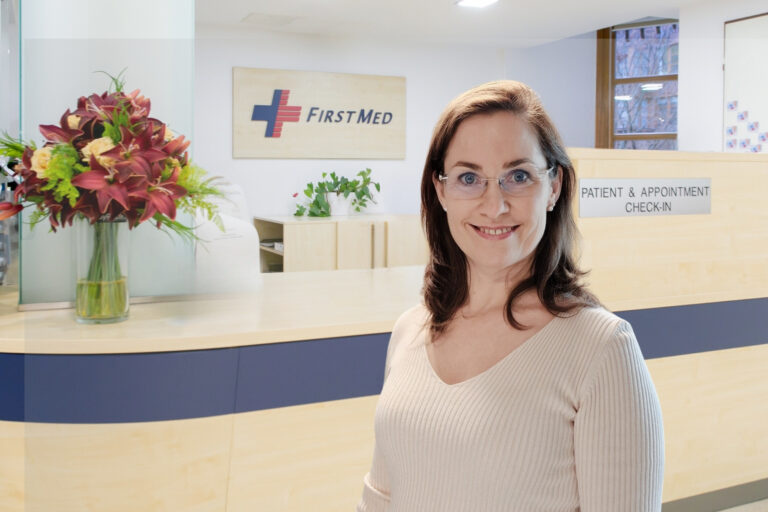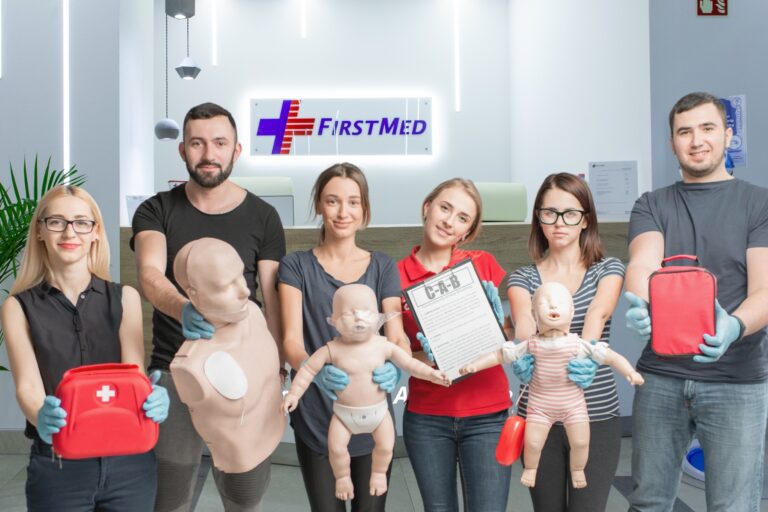Colorectal Cancer Screening — Colonoscopy
Colonoscopy screening helps prevent gastrointestinal and colorectal cancer by detecting precancerous polyps (abnormal growths) early, so they can be removed before they turn into cancer.
Don’t wait for symptoms to be checked. If you’re 45 or older, or at average risk of colon cancer, speak with your doctor and get screened.
We provide a colonoscopy service in our state-of-the-art Endoscopy Center, to investigate problems in the bowel and diagnose conditions affecting the colon.
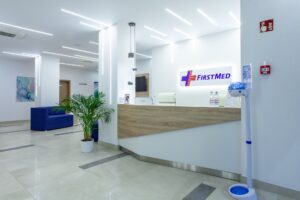
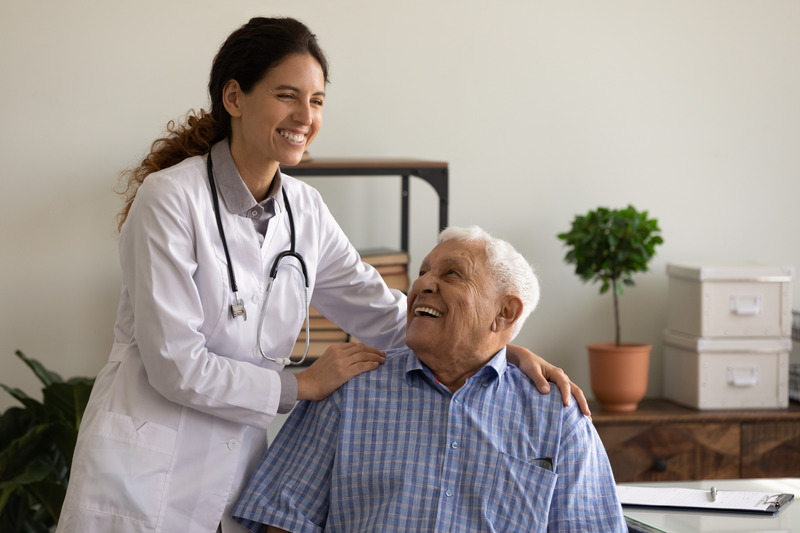
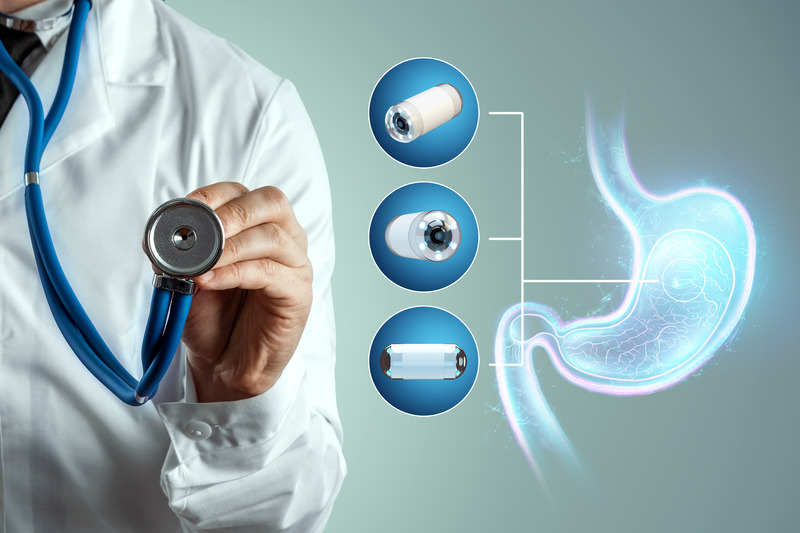
OUR SERVICE
Colonoscopy
A colonoscopy is a medical procedure that involves using a thin, flexible tube called a colonoscope to examine the lining of the large intestine or bowel. The colonoscope is carefully inserted through the rectum and into the colon to identify potential causes of symptoms such as abdominal discomfort. It is also an effective diagnostic tool for routine check-ups of certain bowel conditions. Additionally, colonoscopies are useful for detecting and potentially treating polyps, tumors, and other sources of bleeding that may be unknown.
The colonoscopy procedure
At FirstMed, your comfort and health are our utmost priorities. You may be sedated during a colonoscopy to ensure the procedure is as comfortable as possible.
Our highly-trained healthcare professional gently navigates through the colon using a specialized colonoscope instrument.
This thin, flexible device has a tiny camera that transmits images to a monitor, allowing us to inspect the colon. During the procedure, we can spot and even remove polyps, growths, or other abnormalities. A typical process in an outpatient setting only takes 30-60 minutes.
Ensuring your health through this crucial screening tool is our utmost concern at FirstMed.
Preparing for the colonoscopy
Before the procedure, you will consult with a FirstMed primary care physician to discuss:
• your current health condition
• regular medications
• family & medical history
• potential symptoms.
Further diagnostic tests, such as scans or blood tests, may be necessary prior to the colonoscopy. We will discuss with you any additional costs before further tests are carried out.
Aftercare
Following the colonoscopy, you will spend about 30 minutes in our comfortable recovery room before leaving the clinic.
If you have had a biopsy or any polyps removed, we will send the samples to an external lab for examination and return them to your primary care doctor to review the results.
If you have received sedation for the procedure, you will require assistance in getting home.
Occasionally, complications such as fever, bloating, slight rectal bleeding, and abdominal pain may occur. If you experience such symptoms, please call us right away.
Why might I need a colonoscopy?
Medical professionals recommend that patients over the age of 45 be screened for colorectal cancer every 10 years, earlier and more frequently, with a family history of colorectal cancer.
It is important to screen for colorectal cancer because pre-cancerous lesions, or polyps, can be removed if identified early — as opposed to other cancers where screening simply looks for early-stage development.
Using a colonoscopy, a doctor can identify diseases of the colon (ulcer, tumor, inflammation, diverticulum, and other abnormalities) based on complaints (stool disorder, abdominal pain, bleeding).
A colonoscopy is the best procedure for detecting colorectal cancer, as polyps can be identified and entirely removed before developing into something more serious.
If necessary, the doctor can perform histological sampling of the area considered abnormal (biopsy) or conduct specific therapeutic measures – sometimes as a substitute for surgery – with devices introduced through the working canal of the colonoscope (such as suppression of bleeding, foreign body or polyp removal, etc.).
A colonoscopy may also diagnose such conditions, as inflammatory bowel disease, diverticular disease, etc.
A colonoscopy is a highly efficient tool to detect problematic bowel symptoms, including:
- Bleeding from the rectum
- Unexplained anemia
- Chronic diarrhea or constipation
- Weight loss
- Abdominal pain
- Slime or mucus in the stools
- Suspected polyps
![Featured-image-colonoscopy[1] Featured-image-colonoscopy[1]](https://cdn-6477c452c1ac1878f84c15e8.closte.com/wp-content/uploads/2024/03/Featured-image-colonoscopy1.jpg)
They gave me all the necessary information and instructions – answered all my questions and provided constant reassurance that I would survive the procedure... and I did!
The day before I was sick with nerves which I can assure you was totally unnecessary as I found out the next day…
So now for the truth about Gastroscopy and Colonoscopy:
• It is completely painless (you are sleeping)
• You remember nothing of it (you are sleeping)
• The whole experience is straightforward, easy and comfortable
• You could potentially save your life and….
• You will have complete peace of mind afterwards
If I can do it — so can you — do not be afraid!
Please believe what FirstMed tells you about the procedure (and don’t listen to scaremongers) – just do it!
Afterwards I cannot tell you how relieved I felt – and how grateful I was to the wonderful team at the Endoscopy Clinic. They were all so kind and understanding.
Would I do it again – 100% yes - but next time without any fear!
Thank you FirstMed!



